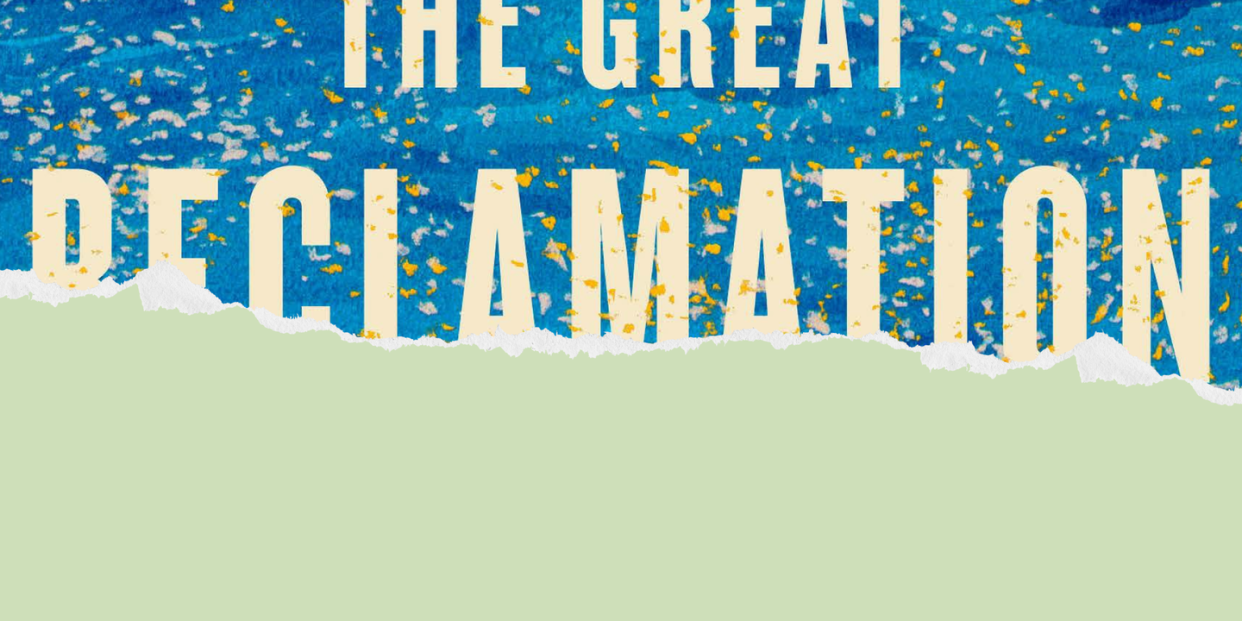Oprah Daily Reveals the Cover of “The Great Reclamation,” by Rachel Heng

- Oops!Something went wrong.Please try again later.
Nearly halfway into Rachel Heng’s lush, capacious second novel, The Great Reclamation, which Riverhead is publishing in March 2023, she writes that, on the cusp of World War II, “the common wisdom was that Singapore was a fortress. The Gibraltar of the East.” In the postwar era, though, that script flipped: Throughout her childhood and youth, she was taught that Singapore was “always at risk—so, so small in this big world,” begetting a national mythology that she engages and questions in her new book. Hence the need to look inward after the collapse of British rule and Singapore’s subsequent, rapid metamorphosis, modernizing amid layers of cultures and languages. In an exclusive, Oprah Daily unveils the bright Fauvist palette and dynamism of Grace Han’s cover composition.
Han evokes tides surging against a craggy breakwater, the kiss of sea and land. “Rachel’s stunning novel is very much about a country being hit with changes outside of its control,” Han observes. “The ocean is both daunting and exhilarating, much like Ah Boon’s life on the coast, and I think the energy of this art is something we can all relate to.” Heng returns the compliment: “I couldn’t have imagined a more perfect cover. There’s a beautiful sense of roiling—full of movement and drama.” The pictorial concept—slightly abstracted, rich in color pairings—underscores the narrative’s fable-like flow, inspired in part by Colson Whitehead’s The Underground Railroad.
Heng’s protagonist, Ah Boon Lee, comes of age in a family and a community caught in the undertow of sweeping change. During his boyhood the war, he struggles with a sense of self as an outsider, finding purpose in a supernatural gift: While out fishing with his father, he spies a chain of islands no map has ever marked, fading in and out, Brigadoon-like, in the salty air; later he discovers their appearances follow the moon’s phases. After tragedy strikes and the British overlords withdraw, Ah Boon must carve out his fate among a people unsure—and anxious—about their own futures, and that of their fledgling nation.
Born in Singapore and raised in public housing, Heng came to the U.S. for college on a government scholarship, earning her undergraduate degree at Columbia. After a few years in England, she returned here for her MFA at the University of Texas’s Michener Center for Writers. (She now teaches at Wesleyan University.) “I knew I always wanted to write about the Great Reclamation Project,” a prism through which to view Singapore’s economic and social transformations. She researched fishing practices in Southeast Asia, even corresponding with a specialist in colonial-era fisheries at the National University of Singapore. She borrowed structural ideas from The Red and the Black, Stendahl’s 19th-century satire about France’s post-Napoleonic society, but also strived for intimacy—Edward P. Jones’s The Known World was a strong model, “history with small human dioramas, deeply felt.”
At one point, Heng got bogged down in what seemed like linear historical fiction. She approached the author Amy Hempel at a reading and confessed she was “very bored” with her process. Stop writing, then, Hempel suggested; and after reading Whitehead’s Pulitzer Prize-winning novel, Heng circled back to The Great Reclamation, infusing it with speculative elements that allowed her to “approach history with a slant.”
You Might Also Like

